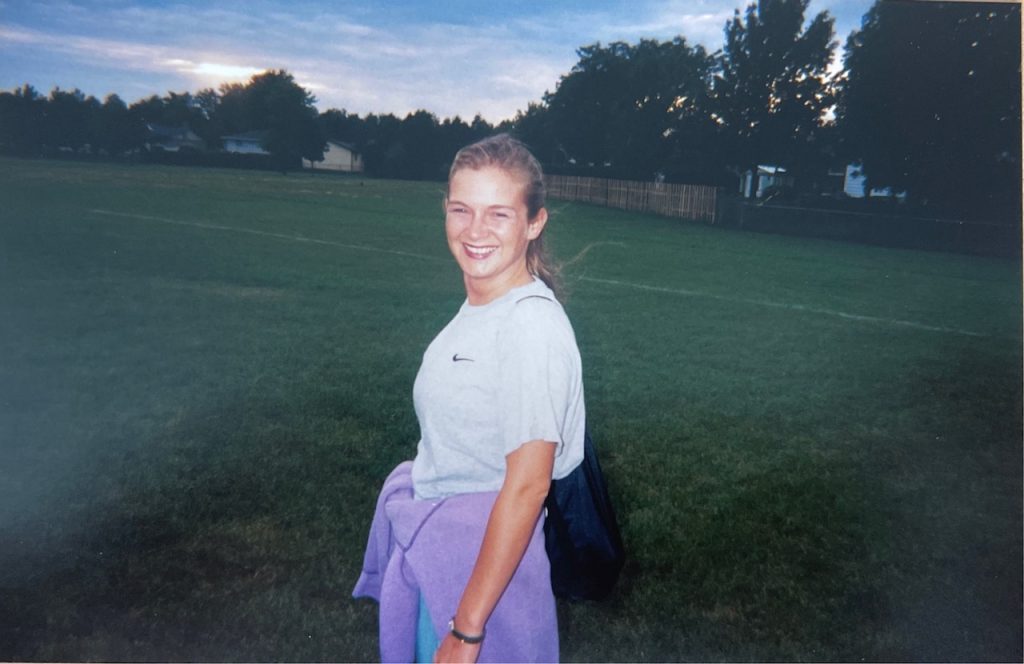Breaking the Silence: My Stalking Experience
I had a stalker. It feels strange to say that out loud, almost as if I’m admitting to something I should be ashamed of. Prior to this article, I’ve only ever discussed it in hushed tones with close friends, lest others somehow find me culpable in a crime I did not participate in. It’s a burden I, and thousands of others, carry daily as both some sort of personal failing and trauma. How I wish there had been more resources and help for stalking victims in Canada at the time.

Instead, for years, I grappled with a sense of shame, questioning myself with thoughts like, ‘How could I possibly have attracted someone like that?’ and ‘What did I do to deserve this?’ And to this day, I often find myself minimizing my ordeal, comparing it to more severe cases, as if my fear and discomfort were any less valid.
The reality of being stalked has left a lasting impact, creating trust issues that have lingered for 35 years. Good grief, the patriarchy really is a mindfuck. So, as simply as I can put it for the knuckle draggers, no woman should have to endure stalking at any level. It’s a violation that’s unequivocally wrong, and it’s time we address it head-on, especially for the many stalking victims in Canada who suffer in silence.
Thankfully, we are, thanks to Julie Lalonde’s new Canadian Anti-Stalking Association.

The Mission of the Canadian Anti-Stalking Association
After grappling with my own experience and the lingering effects of stalking, I find solace and hope in initiatives like Julie Lalonde’s Canadian Anti-Stalking Association. This groundbreaking organization is a beacon of support and advocacy for stalking victims in Canada, who have faced similar challenges.
Stalking, a crime in Canada since 1993, is often shrouded in confusion and misunderstanding. Julie’s organization aims to demystify this issue, change the law, provide prevention education, and build a network for survivor support. As Julie explains, Canada has lagged behind other countries in addressing stalking, lacking dedicated resources for survivors. This gap in support and understanding is what the Canadian Anti-Stalking Association seeks to fill for stalking victims in Canada.
Julie highlights a startling reality: women under 25 face the highest rates of stalking, which is legally termed ‘criminal harassment’ in Canada. The gendered nature of this crime is evident, with nine out of ten stalkers being men and 76% of victims being women. Most alarmingly, 58% of stalking victims in Canada are targeted by former partners, challenging the common misconception of stalkers as unknown or distant figures.

Understanding Stalking in Canada
The Canadian Anti-Stalking Association’s immediate goal is to change Canadian law to better protect stalking victims. Julie proposes a shift in legal criteria, focusing on how stalking impedes a victim’s daily life, rather than the current requirement of proving fear for safety. This change could significantly improve the legal response to stalking cases in Canada.
Understanding what constitutes stalking, or ‘criminal harassment’ as it’s legally known in Canada, is crucial in recognizing and addressing this issue. Stalking involves repeated, unwanted attention that makes a person fear for their safety. It’s not just about physical following or surveillance; it can include persistent calls, messages, online monitoring, or showing up uninvited at someone’s home or workplace. The key elements are the persistence of these actions and their impact on the victim’s sense of safety and well-being.
A striking example that underscores the need for change in the Canadian legal system is a case from Montreal, shared by Julie. In this case, a woman was being stalked, and during her trial, footage of her yelling at her stalker was used against her. The judge interpreted her anger as a lack of fear, leading to the stalker’s acquittal. This case highlights a critical flaw in the current legal framework: the requirement for victims to demonstrate fear for their safety. It overlooks the complexity of human emotions and responses in threatening situations. Victims may react in various ways, including anger or assertiveness, which should not be misconstrued as a lack of fear or danger.

Advocating for Legal Reform in Stalking Cases
Julie‘s proposal to change the legal criteria for stalking in Canada is a response to such shortcomings. By shifting the focus to how stalking impedes a victim’s daily life, the law can provide a more objective and comprehensive understanding of the impact of stalking. This change would allow for a more accurate assessment of stalking cases, ensuring that victims’ responses during traumatic experiences are not used against them.
The Canadian Anti-Stalking Association’s efforts to redefine and address stalking are not just about legal changes; they’re about transforming societal understanding and responses to this pervasive issue. It’s about acknowledging the varied experiences of victims and ensuring they receive the support and justice they deserve, particularly for the many stalking victims in Canada who often feel overlooked.

A Path Forward for Stalking Victims in Canada
As someone who has lived through the fear and uncertainty of being stalked, I recognize the importance of this work. The path to change is challenging, but with organizations like the Canadian Anti-Stalking Association leading the way, there is hope for a future where stalking is understood, victims are supported, and perpetrators are held accountable.
As Julie Lalonde passionately works towards these goals, the Canadian Anti-Stalking Association stands as a testament to the power of advocacy and the urgent need for change, especially for stalking victims in Canada. It’s a cause that resonates deeply with me, as someone who has experienced the fear and trauma of being stalked. The path to healing and justice is long, but with efforts like these, it’s a path that’s finally being forged for stalking victims across Canada.
For more information and to support this vital cause, visit stalking.ca. Together, we can make a difference and work towards a future where no one has to say, ‘That happened to me too’.